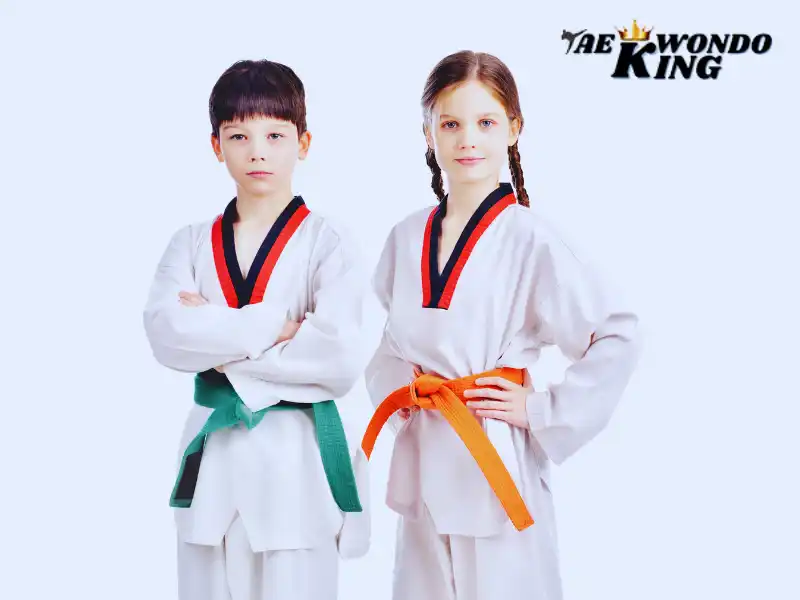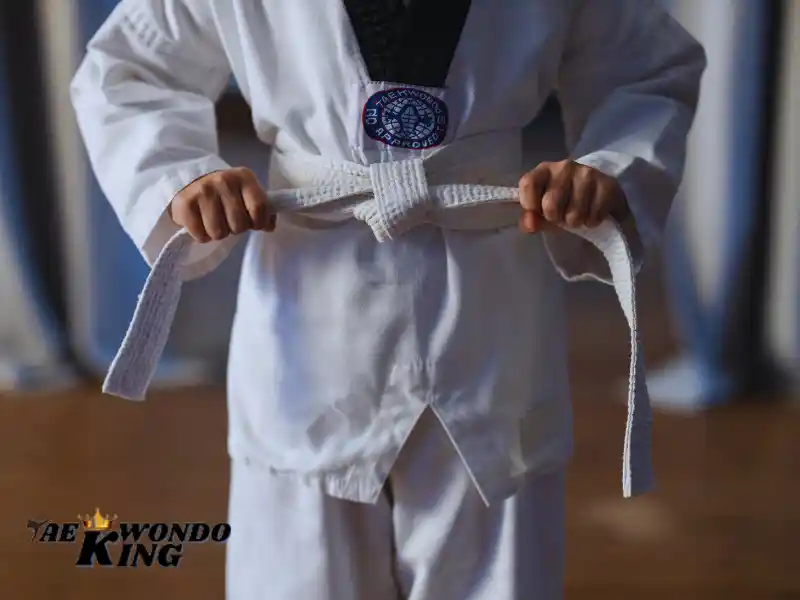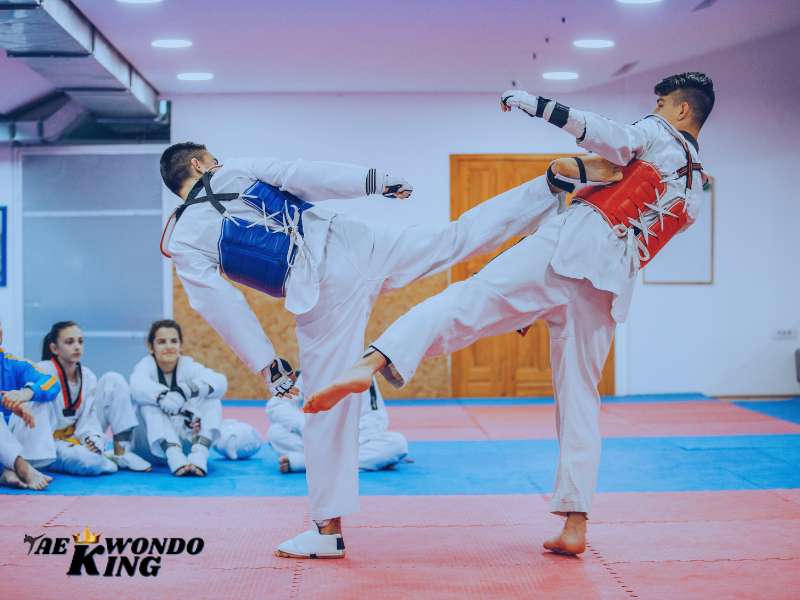
Taekwondo is an energetic martial art that merges physical fitness, discipline, and self-defense skills, rendering it an exceptional activity for kids. Nevertheless, many parents question: What age can my kid start participating in Taekwondo? Although the answer may differ based on the child’s readiness and the school’s program, the majority of experts and instructors concur that children as young as 3 to 6 years old can start training in Taekwondo.
This article examines the optimal starting age for Taekwondo and the advantages for young children. And considerations to remember when determining if your child is prepared for this martial art.
The Ideal Age to Start Taekwondo
Preschool Age (3–5 Years)
Kids as young as three years old can commence taking part in beginner-level Taekwondo programs. At this age, classes generally concentrate on enhancing:
- Basic motor skills: Coordination, balance, and flexibility.
- Listening and focus: Following directions and engaging positively with peers.
- Simple techniques: Fundamental stances, punches, and kicks presented through enjoyable, interactive activities.
Numerous Taekwondo schools provide “Tiny Tigers” or “Little Dragons” classes designed specifically for preschoolers. These sessions emphasize play-based learning and aim to cultivate confidence while nurturing an early passion for martial arts.

Early Childhood (6–9 Years)
For most kids, ages six to nine constitute an optimal period for engaging in Taekwondo. At this point, children usually exhibit:
- Improved physical development: Enhanced strength, balance, and endurance.
- Cognitive maturity: Increased capacity to focus, follow multistep directions, and comprehend basic techniques.
- Emotional readiness: Greater ability to accept constructive criticism and persist through difficulties.
Children within this age group can participate more fully in organized Taekwondo training, moving up through belt levels and engaging in sparring or competitions if they wish.
Pre-Teens and Teenagers (10+ Years)
While younger kids frequently initiate Taekwondo, it’s never too late for older children to join in. Pre-teens and teenagers frequently thrive due to their heightened physical strength, capability to grasp complex techniques, and desire to reach goals such as attaining a black belt or competing in tournaments.
Benefits of Starting Taekwondo at a Young Age
Physical Development
Taekwondo encourages fitness through activities that improve flexibility, strength, and cardiovascular health. For developing children, this can establish the groundwork for a lifelong practice of remaining active.
Mental and Emotional Growth
- Discipline and focus: Taekwondo instructs children to concentrate on tasks and strive toward objectives.
- Self-confidence: Mastering techniques and receiving belts elevate a child’s self-worth.
- Resilience: Children learn to overcome obstacles, such as losing a match or requiring repeated practice on a move.
Social Skills
Taekwondo classes offer a structured setting where children can interact with peers, learn teamwork, and practice respect for teachers and classmates.
Self-Defense and Safety Awareness
While Taekwondo highlights discipline and respect, it also trains children in fundamental self-defense techniques and situational awareness.
Factors to Consider Before Enrolling Your Child in Taekwondo
Physical Readiness
Is your child physically able to engage in activities that include running, jumping, and stretching? Although Taekwondo can be customized for various abilities, a minimum level of physical coordination is beneficial.
Attention Span
Young children, particularly those under the age of five, might find it difficult to maintain focus. Seek out programs specifically crafted for their developmental stage, where the activities are brief, captivating, and diverse.
Emotional Maturity
Is your child capable of receiving constructive criticism? Are they prepared to engage in a structured group environment? Emotional maturity is crucial in facilitating a positive experience.
Program Quality
Select a trusted Taekwondo school that has certified instructors with experience in teaching children. Inquire about class sizes, curriculum, and the instructor’s methods regarding discipline and safety.
How to Support Your Child’s Taekwondo Journey
Set Realistic Expectations
Recognize that advancement in Taekwondo requires time and effort. Acknowledge small victories, such as mastering a new kick or earning a stripe on their belt.
Encourage Consistency
Regular participation is essential for skill development and confidence. Assist your child in creating a routine that incorporates Taekwondo training.
Be Involved
Attend classes or competitions whenever feasible, and express interest in what your child is learning. This can enhance their excitement and motivation.
Promote a Positive Mindset
Highlight the value of effort and progress rather than perfection or winning. This fosters resilience and a growth-oriented perspective.
When to Delay or Reconsider Starting Taekwondo
Although Taekwondo provides many advantages, it may not suit every child during every phase. You might think about postponing if your child:
- Struggles to follow directions or concentrate for brief intervals.
- Exhibits no enthusiasm for martial arts or group activities.
- Is currently burdened with other obligations, such as school or other extracurricular pursuits.
In such situations, reevaluate the prospect of Taekwondo in a year or two, as interests and skills can evolve with age.
FAQs About Kids Starting Taekwondo
1. What is the youngest age for Taekwondo competitions?
Children as young as six may engage in beginner competitions, depending on the governing organization and regulations. These events are usually low-pressure and prioritize skill development.
2. How often should my child train in Taekwondo?
New students typically train 1–2 times per week. As they progress, they might opt to train more frequently to prepare for advanced belt levels or competitions.
3. Can shy or introverted kids benefit from Taekwondo?
Certainly, Taekwondo can assist shy children in gaining confidence and social abilities within a supportive atmosphere. The structure and discipline of the classes often aid them in feeling more secure.

Conclusion
So, at What age can my kid start participating in Taekwondo? While children as young as three can partake in introductory classes, ages six to nine are often most suitable for more profound engagement and skill enhancement. No matter when your child starts, Taekwondo provides numerous physical, mental, and social advantages that can enhance their lives.
By selecting the appropriate program and supporting your child’s journey, you’re not merely enrolling them in a martial art, you’re assisting them in cultivating confidence, discipline, and a solid foundation for future achievements.

Founder, Owner, and CEO of TaekwondoKing.
He is one of the top 100 martial artists in the World and among the top 20 referees in Bangladesh.
Ehatasamul Alom is an esteemed Kukkiwon Certified Taekwondo 3rd Dan Black Belt with over 15 years of experience in this dynamic martial art. Born in Rajshahi, Bangladesh, Ehatasamul’s journey with Taekwondo began at the tender age of seven. His passion led him to compete at national and international levels, where he has bagged numerous awards and honors. He is also a member of the Taekwondo National Referee Panel.
With a Bachelor’s degree in Sports Science from the prestigious Rajshahi University, Ehatasamul has a deep understanding of the technical and scientific aspects of martial arts and some other martial arts.
In 2022, Ehatasamul created the “TaekwondoKing.com” to share his knowledge, Free Resources, Values, and Real experiences. His articles focus on Taekwondo training techniques, competition strategies, Sport Products Reviews, and the art’s rich history and philosophy. He also writes about the importance of mental fortitude and discipline, key aspects of his teaching philosophy. He has already launched many sports, Taekwondo, and health-related Free online tools. His goal is to inspire both beginners and seasoned practitioners worldwide through insightful and engaging content.
If you need any help, contact Ehatasamul Alom at any time.




